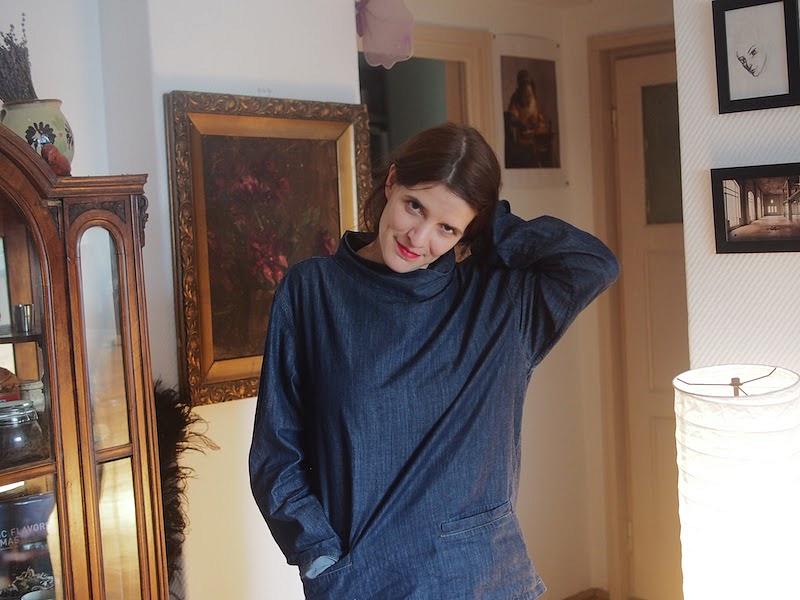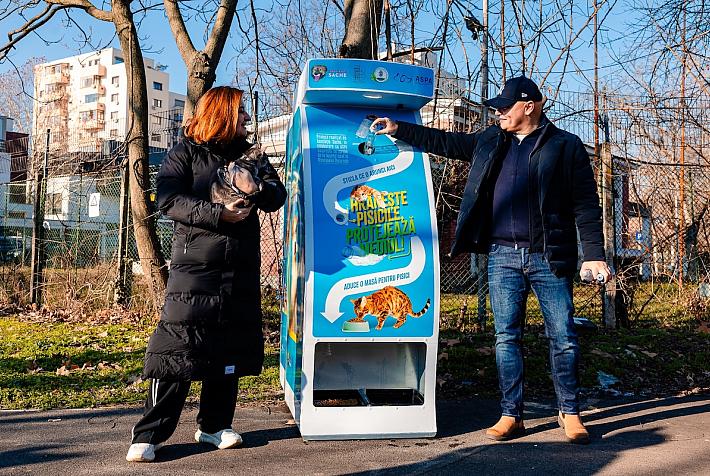Swedish journalist goes beyond Romania's stereotypes

Nana Håkansson makes her way through the crowd gathered in Control, one of Bucharest’s most popular clubs. Holding a small recorder, the energetic young woman wearing red lipstick asks people what they believe about manele, a music style from Romania, derived from gypsy music.
It’s a cold October night in 2015, but the terrace is full of young people drinking and talking. Control just hosted the projection of a short movie documenting a beatbox workshop in Baia Mare’s ghetto.
It’s Nana’s first month in Bucharest, where she has moved to start a social project with a friend. They want to help set up a street paper for the homeless people in Bucharest. Nana is a cultural critic and a journalist who covers topics such as Roma rights, feminism, EU migrants for the Swedish radio.
Two years later, her home is still in Bucharest, but her journalistic approach has slightly changed
“Instead of showing the poor, sad Romania, I am now kind of showing the opposite,” she says. “I’m so tired of the stereotypes about Romania. I will write about manele, biennale, Romanian writers. I will never write about Romanian beggars in a way that you want to.”
***
Nana Håkansson moved to Romania for the street paper project, but she’s always wanted to come here because she fell in love with the country when she was 19. In her last year of high school, she came by train from Sweden to Hunedoara. She was in a Swedish hiking association and went hiking in Transylvania.
The journalist grew up in the countryside in the south of Sweden. Her dad, an economics university teacher who was writing political columns in the newspaper, was a member of the farmers’ party for a long time. Many of her family members were farmers, living in a part of Sweden that belonged to Denmark. A woman that used to know her as a kid told Nana a few years ago. “I’ve never imagined you living in an apartment in a big city.”
Nana took up Eastern European studies and journalism in university and started taking Romanian classes. In her early ‘20s, she would come to Romania every summer.
On her first trip to Romania, she remembers taking pictures of Roma women, as she found their dresses exotic. It’s a memory that she’s very ashamed of.
“Back then I thought of them as exotic people and didn’t realise the history of persecutions,” Nana says.
She knew that she also had Roma roots, but somehow it was only a genetical connection, as she never got to experience the culture.
In the ‘40s, you were persecuted in Sweden if you were Roma, Nana explains.
“The grandfather of my father was Roma and the grandmother of my father was Roma, but from different sides,” she says. “If they had lived openly in Sweden, my dad would have known [the language e.n.] Romani.”
Having Roma roots was a big shame in her family. It was only some years ago when the family on her father’s side eventually admitted that they are from a Roma family. However, she’s never had that shame, and nor has her father.
“My father gave me copies of the investigations done by the Swedish state about the Roma in the 40s,” Nana says.
***
A month after she moved to Bucharest, the Colectiv tragedy took place. On October 30, a fire in the Colectiv nightclub killed 64 people and injured 147. Nana wanted to attend the event on that night, but she was late.
“We arrived at the same time as the first ambulance,” she recounts.
One of her flatmates lost two friends. Under the shock of those events, they didn’t leave the apartment for two months, just drinking tea and talking.
The project with the street paper failed, then Colectiv happened, but she felt that she had to give Romania another chance. “I’ve always wanted to stay here. I feel like I have to stay until I learn Romanian properly.”
Nana now lives in an apartment in downtown Bucharest. She spends the day thinking and writing. Besides her radio stories or the book reviews she does, Nana is working on a film script and two novels. One is about her life in Romania and the other one is about her childhood.
“I try to watch a movie every day. I do some research. I don’t spend any money really. I take Romanian classes twice a week. I try to meet one person every day not to go nuts,” she describes her life in Romania.
One funny thing she discovered about Romania is that many men on Tinder have pictures with dolphins. She thought about doing a story on this. Nana is very clear about one thing. She would never date a man who is not a feminist.
She feels that Romanians are friendlier to foreigners. But in a way, that reminds her of her grandmother, who was her best friend. Every time when she would have guests from other countries, the grandmother would invite them over to a special room in the house, which was used only once a year or so. She would bring them coffee, whereas her mom would prepare the nicest meals when they had guests.
When asked if coming to Romania was a way of returning to her ancestors’ past, Nana replies:
“I really love Transylvania, it reminds me of home a lot. When I went to a wedding this summer, it could have been a Swedish wedding in the countryside.”
Diana Mesesan, diana@romania-insider.com
(photo by Diana Mesesan)












